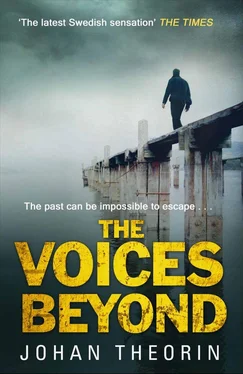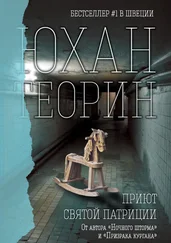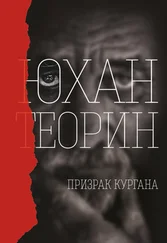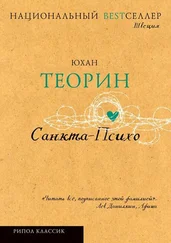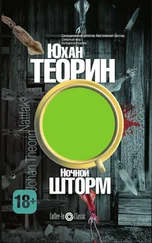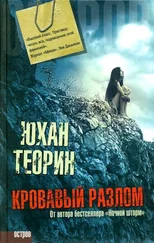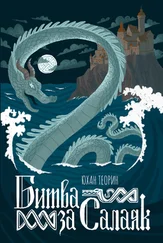The Homecomer recognized parts of the arms dealer’s clothes, but nothing else.
There was nothing else to recognize.
The eagles’ beaks had done their work, and Wall’s face was no longer there.
The Homecomer let go of the gunwale and backed away. He had seen dead bodies before; he was used to it. He made his way back to the shore and stood there with wet shoes, staring at the skiff.
Finally, when he had pulled himself together, he went into the house to try to find what he had come for. The cottage was a treasure chest now.
Wall had boasted that the police had been there, searching for guns, but had found nothing.
The Homecomer set to work, and he had better luck. Guns were his forte; he knew what they weighed; he could almost smell them. Methodically, he went through every piece of furniture in every room, and when he checked a rectangular dowry chest upstairs and saw that it contained old blankets, the weight made him suspicious.
It was too heavy.
The guns weren’t among the blankets; they were right down at the bottom, hidden under a false base.
The first was an old long-barrelled Husqvarna with five boxes of Gyttorp cartridges. The ammunition looked good, but the rifle itself was worn.
The second was a modern Beretta. Beautiful.
The Homecomer held the guns up to the window and studied them one at a time; he liked a weapon that fired well, with reliable ammunition that killed the quarry quickly, if the marksman did his job.
Guns on the island had been very poor when he was a boy and had led to many accidents. In those days, a number of old hunters were still trying to shoot seabirds with muzzle-loading firearms and worse; it often took three or four shots before the bird was dead.
The Homecomer had never needed more than one shot to kill something or someone, not even when he was a boy. The ability to kill instantly was partly about having a good weapon and being stone-cold sober, but it was mostly about remaining calm and having a steady hand.
He carried both guns downstairs. He ought to leave right now, but there was a bunch of keys hanging in the kitchen. Padlock keys.
He picked them up and went out to the boathouse. Many boathouses on the island were secured with nothing more than a piece of rope, but Wall’s was furnished with a steel bar and a sturdy padlock. Had the police checked out here?
After some trouble, the Homecomer found the right key and opened up.
The stale smell of seaweed rushed towards him. He could see why; the place was full of fishing nets, hanging from poles attached to the ceiling.
In one corner he spotted a glass bottle: CHLOROFORM. He put it by the door and continued searching.
Right at the back, beneath piles of old nets that stank to high heaven, he found a couple of wooden boxes marked with a yellow sticker. He carried them out into the light.
The boxes had been carefully nailed shut. He thrust an old fish-gutting knife under the lid and forced the first one open. The contents were exactly what he had expected. He replaced the lid, wrapped his treasures carefully in a blanket and took them over to the car.
He glanced over at the skiff and the birds one more time. The sea eagles were back on the gunwale, bending down to eat. The ravens were waiting their turn. Soon the birds would have torn Wall’s body to pieces, bit by bit. All the Homecomer could do was call the police, perhaps. Anonymously, of course, from a phone box.
He got in the car and drove off.
The New Country, November 1933
Aron is lost. Winter has returned to the new country, and everything is white. Empty and white. Mountains in the distance, forest close by, wide expanses of snow. And then the wide trench, slicing through the landscape like a dark-brown wound.
The mosquitoes have gone now that cold covers the wilderness, but life for Aron and Sven is not much easier.
Their home is a ramshackle hut where weary workers from at least ten different countries gather every night. All the immigrants eat dry bread and a thin meat soup around the iron stove, then fall into bed, often sharing, top to tail.
The hut stinks like an old stable. The labourers stopped washing when the water froze, which was several weeks ago.
Aron hears the wind howling on the other side of the thin wall and thinks about Öland, about the shore and the rocks he used to stand on in the sunshine, about the days when he would go out shooting with his grandfather, about the evenings when his mother would tell him stories, him and his sister, Greta — but these are faint childhood memories.
He is fifteen years old now. He has started to mix up the old language and the new, strange, foreign words that seep into his head and come out of his mouth, faster and faster.
It’s not just that he is older — he has started to change, to turn into a foreigner. There is no mirror in the hut, but he can feel fine hairs beginning to sprout on his cheeks and chin, a downy beard that is gradually getting thicker and stronger.
Every morning he wakes in the cold, surprised that he is still able to move. If the stove has gone out during the night, it is his job to relight it — if there is any wood left. He pushes in a few sticks and manages to get it going. At the same time he hears Sven and the other occupants of the hut slowly beginning to move, coughing and grunting.
One morning an older man (Aron thinks he might be German) two bunks away doesn’t wake up. Someone shakes him, but quickly draws back. The German is as stiff as a board.
‘Heart attack,’ Sven says quietly.
Aron looks at the dead man and thinks of Gilbert Kloss, who collapsed and rolled into a grave on a sunny summer’s day. His heart had stopped, too, but that was from fear.
The German is carried out and buried far away, out of sight, beneath a wooden cross. No one wants to think about him any more. He is dead.
Aron is determined to survive. In spite of the work, in spite of the cold.
Whether the stove is burning or not, the hut never feels warm. All those frozen joints and muscles struggle to thaw out. Icicles hang from the ceiling, frost creeps down the walls. There is a thermometer nailed to one of the huts; it often shows minus twenty-five degrees.
But still they have to go out. Time to work, to break fresh ground. They trudge through the snow beneath the fir trees; they shovel, fell trees, hack their way into the frozen ground, all because the trench must keep on growing.
The long white days in the ditch become routine.
Sven works just as hard as everyone else, but he has almost stopped talking in the cold. Sometimes he takes out his wooden box, checking for the thousandth time if there is any snuff left. Then he mutters something with his head down, and carries on hacking.
Occasionally, he comes to life in the hut in the evenings, but that’s not necessarily a good thing. He stares around wildly and raises his hand to Aron in the darkness, ready to strike if he asks the wrong question — but Aron has almost caught up with Sven and merely stares back. He is tall, and he is too tired to be frightened of Sven, so he stands his ground, his legs apart; he has started to defend himself.
If Sven hits him, he retaliates. It feels good to strike back.
‘How are you getting on?’ his mother asked.
Jonas kept the receiver pressed to his ear, not knowing what to say. He had things to tell her, about the ghost ship and the hunt for Peter Mayer, but he didn’t dare speak. He didn’t know who might be listening. Uncle Kent had said they mustn’t talk about what had happened, and he could turn up at any moment. This was his telephone, on a table by the window in his house.
‘Fine,’ he said eventually.
Читать дальше
